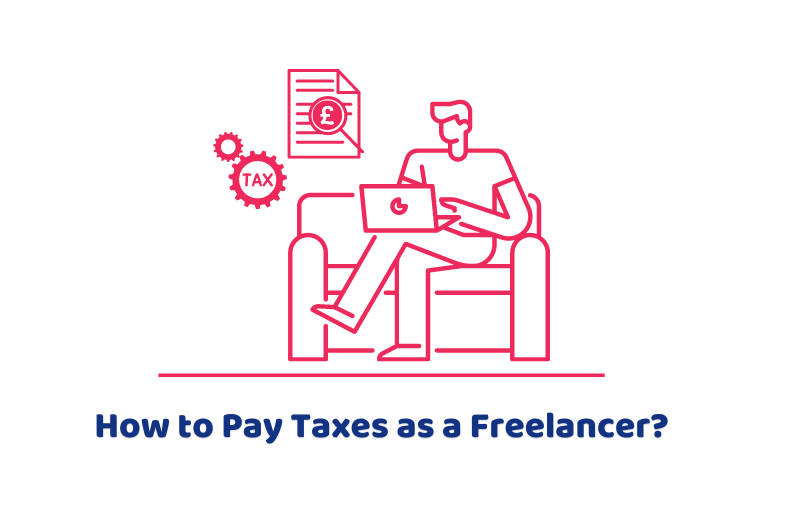People often wonder about what is the tax liability of freelancers, when will they have to pay the tax, and how the system of tax in the UK is affecting self-employed individuals. The increasing tendency of freelancers in the UK is an imperative part of the economy. According to research in the year 2021, there were around 1.9 million freelancers working in the UK and they are contributing a major part to the betterment of the economy. People often enquire about what is the tax on freelance work in the UK.
Moreover, £132 billion is an estimated figure for the year 2021 that is being contributed to the economy by freelancers. The flexibility of the working hours and a varied range of clients are some of the prominent benefits for freelancers. Still, there is no escape from the tax implications. The set of rules and the UK tax law is equally important for freelancers. Because of the off-payroll legislation in the UK, the tax rules for freelancers have become more and more complicated.
Do you aim to create accurate bookkeeping ledgers with the help of tech-savvy accountants at the AccountingFirms? Or need a guide about the tax on freelance work in the UK? We can help!
What are the Types of Freelancers in the UK?
Freelancers refer to a person who is free to work for themselves. Such individuals are normally associated with the kind of community that offer services and products on their own without being attached to any company or organisation. The range of clients varies and it depends on what kind of services are being offered. Graphic designers, writers, consultants, and contractors are a few examples of freelancers. Freelancers can be in multiple guises when we talk about the business structure. Some prominent business structures in this regard are listed and explained below.
1- Umbrella Company Works:
It works as the employer of freelancers. In such cases, the system of payroll is followed to pay the freelancers as well as the contractors who are associated with the company.
2- Personal Company Service:
The personal service company is a kind of structure that is carried out by freelancers to offer the services of the projects to a variety of clients. This comes under the category of a limited company and it has its own identity other than the association with the directors and the shareholders. This further explains that they will take responsibility for the amount of money that they have invested in the business.
3- Sole Trader:
Sole traders are also self-employed and they are the owners of the business. This makes them liable for any kind of business payment and debts because the business does not have a separate entity. Being the sole trader is a simple and easy business structure.
What is the Tax on Freelance Work in the UK?
The freelancers who have opted for the business structure of sole trading will have to pay income tax on the number of profits they are learning. On the other hand, when a freelancer operates as a limited company, he will have to pay the corporation tax on the earned profits as well as on the amount of money that you have extracted from the company account. 19% is the rate on profits to pay the tax in form of corporation tax when you are operating as a limited company. 45% is the tax rate of profits when you are working in the role of a sole trader.
What is the Untaxed Limit of Earning as a Freelancer?
When the trading profits of a freelancer who is operating as a sole trader go above the limit of the personal allowance, they will have to pay income tax. The amount of personal allowance is £12,570. However, the case of the limited company operation slightly varies in the case of freelancing. They are liable to pay income tax whenever they extract any amount of money in form of dividends or salary.
The Bottom Line
Now that you have gathered a fair amount of information about tax on freelance work in the UK, we can bring the discussion towards wrapping up. Freelancing might sound easy and come with the elements of choice of working hours, flexibility, dealing with a variety of clients and other such benefits, however, the tax implications are as seriously charged as they are in the case of employees. We hope these few minutes of reading have helped you to develop a better understanding of freelancing and how are they taxed in the UK.
Freelancing becomes tricky when you have a higher chance of making an error in your tax returns. Our professional and detail-oriented accountants can help you! Get in touch with us.
Disclaimer: All the information provided in this article on tax on freelance work in the UK, including all the texts and graphics, is general in nature. It does not intend to disregard any of the professional advice.

